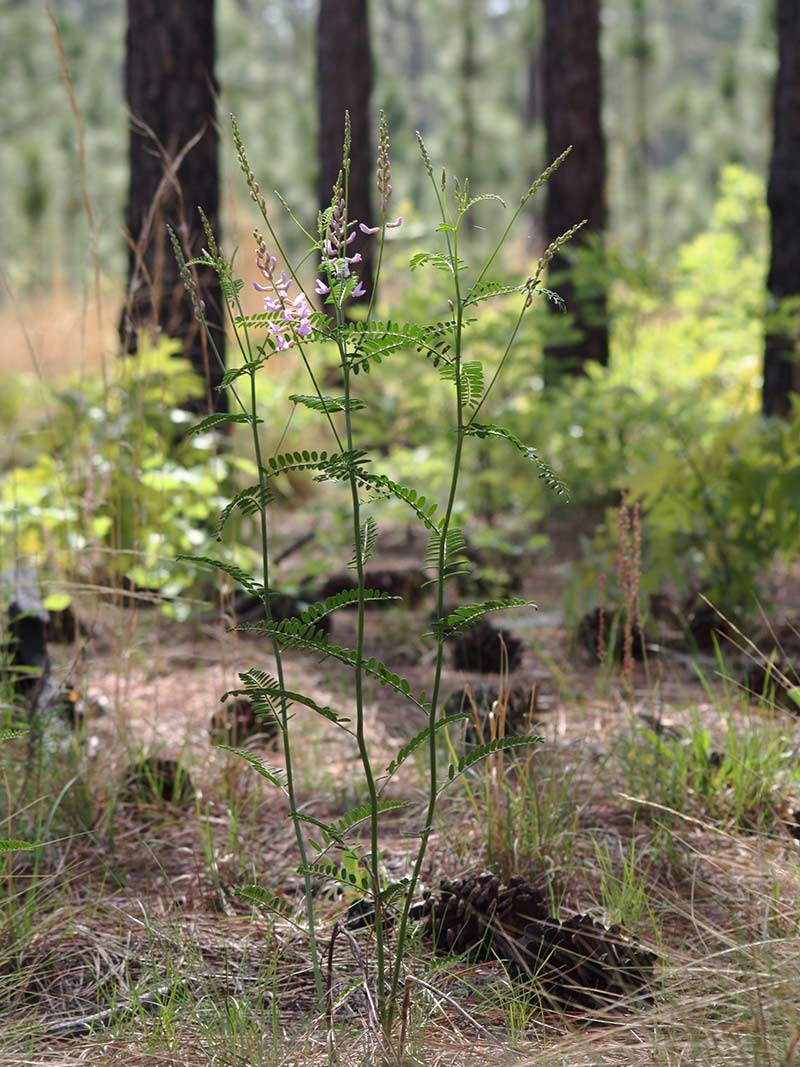Reproductive Ecology of Sandhills Milkvetch: Data to Model a Species’ Trajectory
I have had the privilege to continue my work at the North Carolina Botanical Garden (NCBG), while pursuing a Ph.D. in Ecology from the University of North Carolina at Chapel Hill. My graduate studies focus on the biology and ecology of rare plants, especially the complex processes that drive population declines and contribute to the distribution of species.
This year, I have had the wonderful opportunity to be a Catherine H. Beattie Fellow. The fellowship is supporting population model studies to understand ecological processes contributing to the observed decline of a rare Southeastern endemic species, Sandhills milkvetch (Astragalus michauxii).
This year I have continued research on the reproductive ecology of Sandhills milkvetch to include collecting data on pollinator visitation, herbivory, breeding system, and pollen limitation. I also began an experiment to test the interaction of these factors with resource availability. My goal is to incorporate these data, along with climate data, into population models to explore what drives the observed annual fluctuation in reproduction and to identify conservation actions that may improve the status of this species. If climate drivers, such as temperature or precipitation, are factors driving the dynamics of this species, I plan to use the models and long-term demographic data (14 years) to project how changing climate will affect the current and future abundance and distribution of this species. Ultimately, I hope to test the modeled predictions and apply my findings to work toward recovering this and other rare species.
The Beattie Fellowship has directly affected my research and academic pursuits by providing the time and resources I need to meet my goals. Balancing work, family and school is always a challenge, and that is particularly true this year, with the new stresses and challenges presented during the current pandemic. Without this support, it would have been more difficult for me to continue my research this year.
During my time affiliated with NCBG and CPC, I have known several Beattie Fellows, all of whom I hold in high esteem. It is a huge honor to be included among them and considered worthy of this funding by CPC and the Garden Club of America. As I continue my career, I aspire to follow their leadership and make positive contributions to plant conservation.


